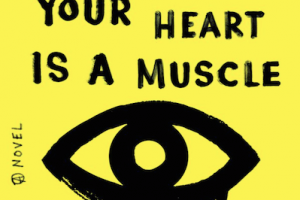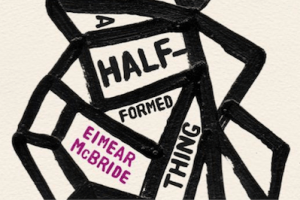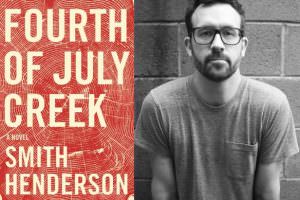|
To see long excerpts from “Remember Me Like This” at Google Books, click here.
|
“Remember Me Like This”
A book by Bret Anthony Johnston
A few years ago, I started avoiding imperiled children. I wasn’t always so callous. I’d wept for Susie Salmon in “The Lovely Bones” and cheered for Jack in “Room.” But suffering kids are an easy way to extort emotional thrills from readers. If you’re not careful, your bookshelf starts to look like a row of old milk cartons, each with a child’s plaintive headshot staring out. As Maureen Corrigan once noted in our pages, “In too much of contemporary American literature — high and low — the storyline concerns kidnapping, pederasty and the torture of children.”
Bret Anthony Johnston’s first novel, “Remember Me Like This,” initially gives every indication that he’s trudging down that gruesome old path. In a brief prologue, joggers in Corpus Christi, Texas, see a body floating in the bay. “None of them thought of Justin Campbell,” Johnston writes, “the boy who’d gone missing years before.” Then, as the story begins, we immediately meet Justin’s parents, Eric and Laura, who’ve been hollowed out by four years of looking for their son. Their marriage desiccated by anguish, Eric is having an affair, while Laura tends ailing dolphins at a marine laboratory. The Amber Alerts have fallen silent, the photocopies have blown off telephone poles and cable news reporters have lost interest. Neighbors stare at the Campbells as though they’re burn victims, their faces “mottled and waxy with misfortune.”
But Johnston, who directs the creative writing program at Harvard, isn’t going to retell the story of a child’s murder or a family’s grief-fueled incineration. Instead, “Remember Me Like This” is the more emotionally subtle tale of a child’s unexpected return and a family’s complicated recovery. That body in the bay isn’t Justin. He’s still alive, apparently unharmed. With a surprise phone call, years of “grimly unchanging” days suddenly give way to the event his parents have almost stopped hoping for. In those first moments of disoriented elation, Eric wonders, “How could his son — taller now and heavier, but still so much himself — be dropped back among them?”
Such miracles, of course, do take place. Elizabeth Smart was found in 2003, nine months after being abducted. In 2007, two boys were found in Kirkwood, Mo.; one had been kidnapped in 2002. But what happens after the cable news hysteria fades away, and the mayor issues a proclamation and the tearful grandparents fly back home? Are these rare families like lottery winners who celebrate in public and then, in the months that follow, squander their good fortune?
This is the question Johnston explores with great tenderness in “Remember Me Like This.” Eric and Laura must relearn the motions of normal life, a life without psychics’ tips, sponsored races and police updates. And normalcy proves much more difficult than anyone in this family anticipated. Before Justin was found, Laura’s notion of him rejoining the family was “hardly more nuanced than all of them bounding over a fence, hurdling from despair on one side to salvation on the other,” Johnston writes. “It was ridiculous.”
In the humane, searching pages that follow, we see that she and Eric have been so crippled by their son’s disappearance that they may never lose that emotional limp. Struggling to explain why she can’t feel relief, Laura says, “Once the worst happens, it’s always happening. It’s never not happening.” Similarly, Eric can’t “remember a moment when his sole focus was anything other than finding the boy. Or bracing for not finding him. Or finding what they’d all prayed they wouldn’t find.” And even after their days settle into the “pleasurable routines of family,” they must both deal with the infinite permutations of blame for not finding him sooner.
This portrayal of a family struggling through what should be its happiest moment is tremendously moving, but there’s a taunting quality to Johnston’s refusal to admit any of the usual elements of the abducted-child story. The novel seems allergic to the legal details a case like this would involve. While therapists and prosecutors warn Eric and Laura not to ask their son about what happened to him, Johnston adheres to that advice, too, and so we learn almost nothing about those four missing years. Even Justin’s kidnapper remains a shadowy, off-stage figure.
For a time, such reticence fertilizes our dread, but eventually those dark years turn blank, that monster fades into a ghost, and young Justin, for all his stoic politeness, seems a cipher. Although I respect Johnston’s willingness to eschew the cheap titillation of lurid details, he’s clearly sensitive enough and talented enough to have delved into the horror of whatever Justin experienced during that crucial quarter of his life. Avoiding it entirely seems like a failure of nerve. Even Eric’s adulterous affair fades away with no more trouble than a magazine subscription expiring. With so many of the story’s inherently exciting elements ruled inadmissible, the novel risks bloating with rumination.
It feels unfair to both praise and criticize a novel for approaching this sensational plot in such a muted, restrained way, but I’m worried that despite extravagant blurbs from John Irving, Alice Sebold, Tom Perrotta and others, “Remember Me Like This” might fall down the crack between thrillers and literary fiction. That would be a shame because there’s real humanity in Johnston’s writing, and it’s heartening to spend time with these folks as they relearn how to be a family. Rendered in these compassionate, candid chapters, theirs is a struggle that speaks to those of us who have endured far less.
Ron Charles is the deputy editor of The Washington Post’s Book World.
©2014, Washington Post Book World Service/Washington Post Writers Group







You need to be a supporter to comment.
There are currently no responses to this article.
Be the first to respond.